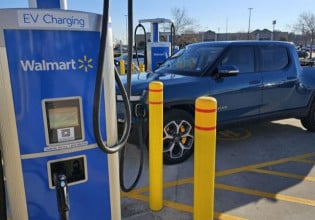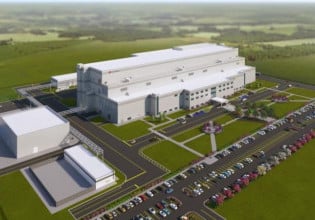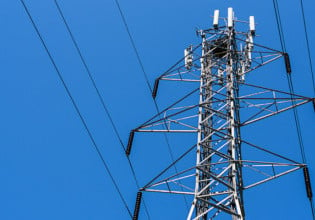Several serious contenders to replace today's lead-acid batteries were showcased at last week's IEEE International Telecommunications Energy Conference (Intelec) in Copenhagen. Over 1,000 attendees saw the most-recent developments in low-speed flywheels, high-speed flywheels, Li-polymer batteries, Vanadium batteries, and fuel cell technologies. This last Intelec of the 20th Century pointed toward a future where lead-acid batteries are replaced in a growing number of applications by a variety of emerging technologies.The implications of several of each of these emerging technologies goes beyond energy storage and will impact the design of rectifiers and other system elements. In addition to environmental ruggedness and long operating life, the ability for fast recharge is a major benefit of several of these advanced energy-storage systems.For example, Beacon Power Corp. (Woburn, MA) presented an update of the numerous field trials of its high-speed flywheel energy storage system. The system, which is scheduled to enter commercial production in March of 2000, works best with rectifiers capable of delivering much higher 'recharge' currents than today's conventional designs. Piller GmbH (Osterode, Germany) and Precise Power Corp. (Bradenton, FL) also presented the latest developments and field experiences with their low-speed flywheel energy storage systems.In the area of Li-polymer batteries, GAIA Akkumulatorenwerke GmbH (Nordhausen, Germany) was jumping out ahead of Hydro-Quebec with the announcement of production beginning in early 2000, at least one year ahead of the Canadian competitors. In addition, the German technology has an operating temperature range of -45 to +85 degrees C, without a heating element. The initial product will be a 100Ah, 12V battery weighing 16 kg.Telepower Australia Pty. Ltd. (Australia) announced plans for commercial development of a Vanadium Redox Battery (VRB) for use in remote telecom sites and even large-scale, grid-connected load-leveling and distributed power conditioning applications. Two 18-month trials are being established to demonstrate the technical feasibility of this new technology.Finally, NTT (Tokyo) was, for the second Intelec in a row, demonstrating its fuel-cell system and looking for commercialization partners. Regardless of which of these technologies proves to be the most viable commercially, it is clear that the future will include an increasing number of options to conventional lead-acid batteries.
- Network Sites:
-
 EEPower Day is a free 1-day virtual conference. Learn More
EEPower Day is a free 1-day virtual conference. Learn More





